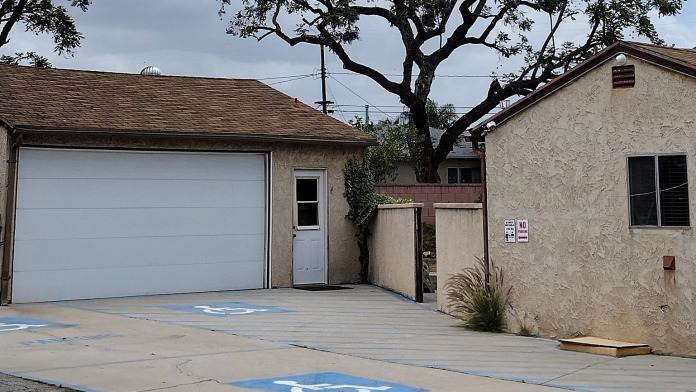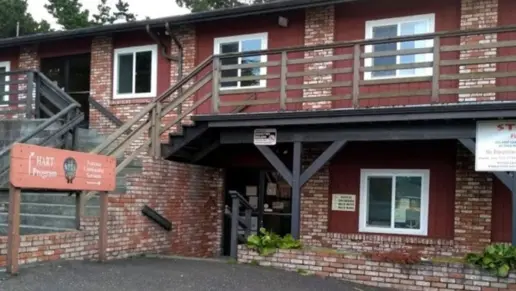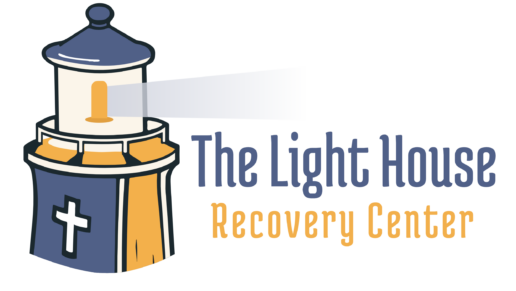About HOW House
H.O.W. House offers outpatient and inpatient treatment for individuals with alcohol and/or substance addiction. The program includes 12-Step Meetings, group therapy, individual counseling and more. H.O.W. House is located at Whittier, California.
A resident is given time to obtain a full-time job or to start an educational programs. If he is unable to fulfill these requirements, he will be expected to perform thirty hours per week of community service. Each resident pays a service fee of $600.00 per month, $300.00 every 2 weeks, or $150.00 weekly.
While living at H.O.W. House, all residents must attend 12-step meetings regularly, maintain abstinence, participate in weekly house meetings, and help keep the house clean. A house manager closely monitors the house.
Services include sober, supportive lodging, weekly group meetings, and monthly education sessions on the recovery and/or addiction process. They also provide information and referrals to other recovery-oriented services.
Residents are housed in 2 main rooms. These men receive food, cleaning supplies, linens, utilities, and access to a washer and dryer. They also get phone privileges within a limited calling area, and television with basic cable service.
Gallery

Location
Other Forms of Payment
Self-pay involves paying for treatment out of your own pocket. You can use savings or credit, get a personal loan, or receive help from family and friends to fund your treatment. If you don't have insurance or your insurance plan doesn't cover a specific program, self-pay can help ensure you still get the care you need.
Addiction Treatments
Levels of Care
Treatments
The goal of treatment for alcoholism is abstinence. Those with poor social support, poor motivation, or psychiatric disorders tend to relapse within a few years of treatment. For these people, success is measured by longer periods of abstinence, reduced use of alcohol, better health, and improved social functioning. Recovery and Maintenance are usually based on 12 step programs and AA meetings.
Drug rehab in California teaches participants constructive ways to stay clean and sober. Treatment revolves around helping individuals stop using the substance they are addicted to and learn healthy habits to avoid relapse.
Many of those suffering from addiction also suffer from mental or emotional illnesses like schizophrenia, bipolar disorder, depression, or anxiety disorders. Rehab and other substance abuse facilities treating those with a dual diagnosis or co-occurring disorder administer psychiatric treatment to address the person's mental health issue in addition to drug and alcohol rehabilitation.
Opioid rehabs specialize in supporting those recovering from opioid addiction. They treat those suffering from addiction to illegal opioids like heroin, as well as prescription drugs like oxycodone. These centers typically combine both physical as well as mental and emotional support to help stop addiction. Physical support often includes medical detox and subsequent medical support (including medication), and mental support includes in-depth therapy to address the underlying causes of addiction.
Substance rehabs focus on helping individuals recover from substance abuse, including alcohol and drug addiction (both illegal and prescription drugs). They often include the opportunity to engage in both individual as well as group therapy.
Programs


Clinical Services
Cognitive Behavioral Therapy (CBT) is a therapy modality that focuses on the relationship between one's thoughts, feelings, and behaviors. It is used to establish and allow for healthy responses to thoughts and feelings (instead of unhealthy responses, like using drugs or alcohol). CBT has been proven effective for recovering addicts of all kinds, and is used to strengthen a patient's own self-awareness and ability to self-regulate. CBT allows individuals to monitor their own emotional state, become more adept at communicating with others, and manage stress without needing to engage in substance abuse.
Contact Information
14100 Glengyle Street
Whittier, CA 90604


